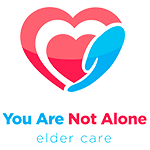Training Services
Training Services
Training Services
Changing The Face of Healthcare Training
Meeting The Needs Of Your Clients And The Communities You Serve

- Aging & End of Life Healthcare Topics
- Cutting Edge and Innovative
- Engaging and Interactive
- Continuing Education
- Clinical and Professional Practices
- Maintain Your License/Certification
Adrian Allotey
Certified End of Life Doula
Longtree Educator
Professional and State Licensed Educator
Facilitated Trainings For Renowned Local And National Organizations
On Demand Longtree Sponsored Presentations:
Discounted to $49 For A Limited Time
CEU Trainings are offered and approved by the credentialing boards of NAB, Board of Nursing, Commission of Case Management and Social Work Boards across the U.S. Attendance, Evaluations and CEU Certificates are done on your behalf. Your community members simply show up which lessens your workload.
Does a Pronoun Really Matter at the End of Life?
End-of-Life Health Care in the LGBTQ+ Community: On Demand Session Discounted To $19 For A Limited
As healthcare providers, we embrace the need to provide culturally inclusive care for the lesbian, gay, bisexual, transgender, queer, or questioning community. This course examines LGBTQ+ terminology and healthcare disparities in the LGBTQ+ community and presents NJ Senate Bill 2545 as a national model of establishing certain requirements concerning LGBTQ+ residents of long-term care facilities. Attendees will assess their personal and organizational understanding, beliefs, and biases of LGBTQ+ individuals as they relate to that community’s healthcare needs, especially at the end of life, and create an action plan for their healthcare organizations.
How Subjective is Your Communication?
Clinical Communication and Relationships at the End of Life: On Demand Session Discounted To $19 For A Limited
Effective communication in healthcare organizations positively affects many aspects of the system and its stakeholders. It allows patients to feel respected and safe to openly communicate their beliefs, fears, and questions in order to receive effective treatment, especially at the end of life. This course will examine how advance care planning is the first line of communication between all stakeholders and barriers to effective communication in healthcare settings, how to maximize limited time to build trust and relationships with all stakeholders, and how to use effective communication techniques so that optimum care is provided at the end of life. Attendees will assess their individual and organizational communication styles/beliefs/biases in efforts to enhance and increase their community approval ratings. Communication techniques and the role of end of life doulas will be shared as resources to bridge limited time restraints in healthcare settings between stakeholders so that communication efforts and optimum care are maximized.
Other Trainings
End of Life Care: Through The Eyes of Hospice and End of Life Doulas
Care managers positively impact the lives of people living with chronic illness and disability by addressing a broad range of issues related to well-being, including assistance in navigating the healthcare system and finding available community resources. Care managers often remain with their clients through the end of their lives. Care managers may not be comfortable with providing end of life care and may benefit from specialized knowledge and skill. This presentation will provide case managers with best practices in treating serious illness, especially in the last 6 months of life, based on the experiences of a hospice worker and an end-of-life doula. A case study will demonstrate how collaborative community partnerships deliver goal-concordant care of the highest quality until the last breath.
- Seeking Caregiving Assistance In Order To Live Your Best Life: Reclaiming Parts of Your Life, Caregiving Options, Immediate Steps to Live Your Best Life
- How Do Family Dynamics Affect You Today: Our Inner Child, Family Disagreements, Burdens, Solutions
- Communication With Your Loved One, Including Those With Dementia: Unpack The Way People Communicate, Create A Communication Plan That Aligns With Your Individual and Family Goals
- Aging People Just Wanna Have Fun (To The Tunes of Girls Just Wanna Have Fun): Minimize Your Aging Stressors, Maximize Your Fun
- What is the Difference Between An End Of Life Doula, Hospice Care, and Palliative Care?
- Five Ws and One H in How You Show Up For Others: Explore How You Show Up In Your Life, Adult Children Concerns For Their Aging Parents
- What is an End of Life Doula and How Do They Fill in the Gaps In Medical Care?
- Are You Living Your Best Life: Rekindle Extra Spark In Your Life, Solutions To Issues That May Have Blocked You From Living Your Best Life, Alleviate Family Members’ Stress and Concerns
Testimonials
What My Clients Say
Adrian Allotey is a valued contributor at Caregiving.com. She brings important insight on the end-of-life experience to our caregiver community. I am thankful for her ongoing commitment to making sure that information about caring for someone through death and end-of-life
Christina B
I recommend Adrian! Knowledgeable and Compassionate.
